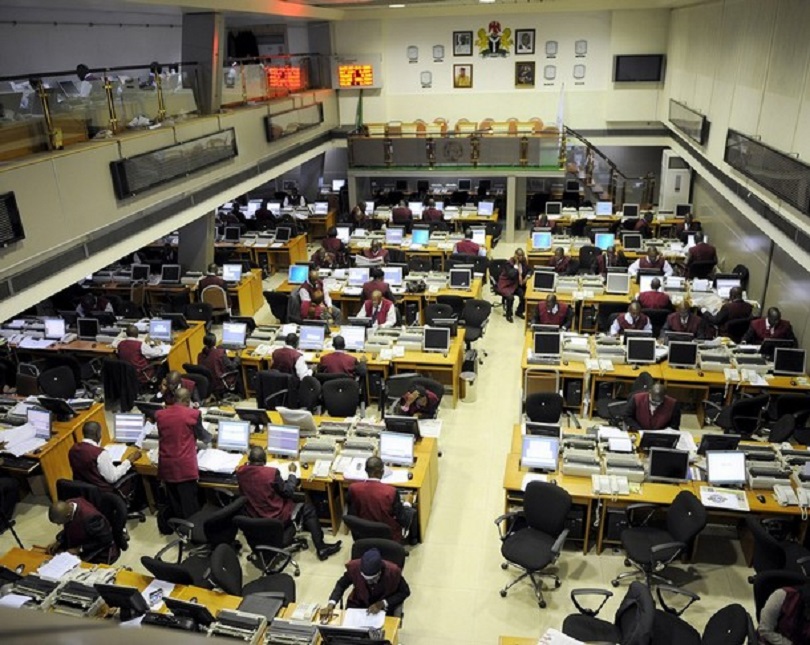Economy
Is Nigeria’s Economy Strong Enough for N33trn Debt?

By Adedapo Adesanya
Nigeria’s debt profile has been a source of worry to many and recently, with the current reality in the global economy as a result of the coronavirus pandemic, which coincided with President Muhammadu Buhari’s request for an additional $22.7 billion external loan, there have fresh reservations on the capability of the country to incur more debts.
Recently, the Debt Management Office (DMO) warned that the country could not hold its own especially with the impact that the virus is having on the country’s economy, making it impossible to service the debts on ground.
According to analysts, the country’s poor revenue generation and annual budget deficit were compounding the debts, as the country has to borrow to balance the shortage which as at September 2019 stood at $26 trillion.
With the Senate approval of the loan after much deliberations earlier this month, the total debt of the country could rise to N33 trillion and this has worried the same Senate, which expressed its displeasure as the loans intended to help the economy are on track to land the country in a crisis.
As such, the Deputy Chairman of Senate Committee on Local and Foreign Debts, Mr Muhammad Bima Enagi, pointed this out while speaking at the one-day public lecture organized by the National Institute for Legislative and Democratic Studies (NILDS), on Public Debt in Nigeria: Trend sustainability and management.
“With the recent approval of the 2016-2018 External Borrowing Plan, the total debt stock would be about N33 trillion and 21 percent Debt to GDP ratio.
“What do we have to show as a people for these huge debts accumulated over the last four decades or so?” he asked.
“Clearly, Nigeria needs to get its public finance in order to avoid the potential fiscal and financial crisis ahead of the nation.
“The current debt situation in Nigeria needs to be properly managed and every borrowed Naira or Dollar, carefully deployed, especially in the face of the continued dependence of the nation’s economy on exported crude oil, with its usual price volatility.
“Borrowings must be project-tied and not just to support budget deficit. Furthermore, the projects must be such to grow the economy and bequeath laudable infrastructure and not debt for future generations,” he had further said.
DMO’s Director-General, Ms Patience Oniha, has, however, called for calm, saying despite these worries, there was no cause for alarm.
She explained that in order to ensure that the public debt was sustainable, the Debt-to-GDP Ratio was set at 25 percent, lower than the 56 percent advised by the World Bank and IMF, adding that the total public debt-to-GDP had remained within the 25 percent limit, standing at 18.47 percent in September 2019.
“This is, however, only one measure of debt sustainability, the other equally important measure is the debt service-to-revenue ratio and this is where Nigeria needs significant improvement.
‘’Actual Debt Service to Revenue Ratio has been high at over 50 percent since 2015, although it dropped to 51 percent in 2018 from 57 percent in 2017.
“The relatively high Debt Service to Revenue Ratio is the result of lower revenues and higher debt service figures.”
But the pertinent question remains on the lips of many, considering the realities on ground with oil prices pointing south: can Nigeria sustain the debt?
Mrs Oniha noted: “Whilst Nigeria’s debt is sustainable, recent developments in the global environment induced by COVID-19, already suggest a less than favourable economic outlook with implications for Nigeria.”
This week, Minister of Finance, Budget and National Planning, Mrs Zainab Ahmed, announced the federal government has suspended its plans to do the $22.7 billion external borrowing. The House of Representatives is yet to approve the request, only the Senate has.
Economy
Naira Trades N1,348/$1 as CBN Opens Official Market to BDC Operators

By Adedapo Adesanya
The Naira appreciated against the US Dollar in the Nigerian Autonomous Foreign Exchange Market (NAFEX) on Wednesday, February 11, by N2.07 or 0.15 per cent to N1,348.95/$1 from N1,351.02/$1 as the Central Bank of Nigeria (CBN) moved to further ease shortages and narrow the gap between the official and street rates.
The CBN approved the participation of licensed Bureaux De Change (BDC) operators in the Nigerian Foreign Exchange Market (NFEM) as part of efforts to improve forex liquidity in the retail segment of the market and meet the legitimate needs of end users.
The apex bank capped the weekly FX purchases at $150,000, adding that utilisation complies with existing BDC operational guidelines.
In the same official market, the Nigerian currency gained N6.46 against the Pound Sterling to quote at N1,840.11/£1 versus N1,846.57/£1, and added N6.36 on the Euro to close at N1,600.13/€1, in contrast to the preceding session’s N1,606.49/€1.
At the GTBank FX counter, the Nigerian Naira gained N5 on the greenback to settle at N1,358/$1 versus the previous day’s N1,363/$1, but remained unchanged at N1,430/$1 in the black market.
Meanwhile, the digital currency market was bearish yesterday as traders sold their positions after digesting a more hawkish macro outlook.
Analysts mainly attributed the latest crypto selloff to shifting expectations around US macro policy, following a “hawkish shift” in Federal Reserve expectations after Kevin Warsh’s nomination as chairman of the US central bank, which signals tighter liquidity and fewer rate cuts ahead.
Traders will be watching key US labour market data for signs on the future path of interest rates and broader risk appetite.
Solana (SOL) shed 3.2 per cent to sell at $79.86, Ethereum (ETH) depreciated by 2.7 per cent to $1,958.44, Bitcoin (BTC) dropped 1.5 per cent to $67,540.62, Cardano (ADA) slid 1.5 per cent to $0.2579, Ripple (XRP) dipped 1.4 per cent to $1.37, Binance Coin (BNB) slumped 1.2 per cent to $609.73, Litecoin (LTC) went down by 1.2 per cent to $52.58, and Dogecoin (DOGE) crashed by 1.1 per cent to $0.0917, while the US Dollar Tether (USDT) and the US Dollar Coin (USDC) closed flat at $1.00 each.
Economy
Nigerian Stocks Near N115trn Valuation After Midweek’s 0.78% Rise

By Dipo Olowookere
The positive momentum witnessed on the Nigerian Exchange (NGX) Limited lately continued on Wednesday after it further closed higher by 0.78 per cent.
More investors are showing interest in Nigerian stocks because of the recent bull run, leaving the market capitalisation to grow further by N880 billion yesterday to N114.377 trillion from N113.497 trillion, while the All-Share Index (ASI) increased by 1,374.93 points to 178,184.35 points from 176,809.42 points.
Though the level of activity waned at midweek, data showed that it remained high, with a turnover of 939.2 million shares worth N34.0 billion in 61,279 deals compared with the 1.3 billion shares valued at N50.4 billion traded in 58,965 deals in the preceding session.
This showed that the trading volume went down by 27.75 per cent, and the trading value shrank by 32.54 per cent, while the number of deals jumped 3.92 per cent.
The busiest equity on Wednesday was Tantalizers with the sale of 85.3 million units worth N498.8 million, Access Holdings transacted 61.4 million units for N1.5 billion, Chams exchanged 38.6 million units valued at N174.1 million, Japaul sold 38.2 million units worth N89.5 million, and Deap Capital sold 36.8 million units valued at N314.1 million.
Fortis Global Insurance, Consolidated Hallmark, Nestle Nigeria, and Meyer all gained 10.00 per cent each to close at 33 Kobo, N4.95, N2,420.00, and N20.90 apiece, and CAP rose by 9.98 per cent to N99.20.
On the flip side, Honeywell Flour declined by 9.70 per cent to N22.80, Neimeth slipped by 9.15 per cent to N12.90, The Initiates crashed by 5.81 per cent to N19.45, RT Briscoe tumbled by 5.70 per cent to N14.40, and Sterling Holdings depreciated by 5.56 per cent to N7.65.
At the close of business, 49 stocks ended on the gainers’ table and 31 stocks finished on the losers’ chart, showing a positive market breadth index and strong investor sentiment.
As for the performance of the bourse’s sectors, four of the five monitored by Business Post were in green, with the industrial goods down by 0.02 per cent due to profit-taking in Lafarge Africa.
The banking counter improved by 1.58 per cent, the insurance counter appreciated by 1.53 per cent, the consumer goods index gained 1.28 per cent, and the energy sector soared by 0.02 per cent.
Economy
Oil Prices Rise on Fresh Iran-US Tensions

By Adedapo Adesanya
Oil prices gained about 1 per cent on Wednesday, as investors worried about escalating tensions between Iran and the United States, which were preparing to resume negotiations.
Brent crude oil futures chalked up 60 cents or 0.87 per cent to sell for $69.40 a barrel, while the US West Texas Intermediate (WTI) crude oil futures appreciated by 67 cents or 1.05 per cent to $64.63 per barrel.
US President Donald Trump said nothing definitive was decided during his meeting with the Prime Minister of Israel, Mr Benjamin Netanyahu, on Wednesday, but that negotiations with Iran toward a deal would continue.
On Tuesday, the American leader said he was considering sending a second aircraft carrier to the Middle East if a deal is not reached with Iran, even as both oil producers are prepared to resume talks.
US and Iranian diplomats held indirect talks last week in Oman, amid a regional naval buildup by the US threatening Iran. The date and venue of the next round of talks have yet to be announced.
After talks between US and Iranian teams in Oman on February 6, the US government imposed additional sanctions on Iran’s oil sector.
Meanwhile, Iran signalled readiness for nuclear verification while denying any intent to build weapons.
Also supporting oil prices was data showing that US job growth unexpectedly accelerated in January and the unemployment rate fell to 4.3 per cent, signalling a healthy economy.
The Organisation of the Petroleum Exporting Countries (OPEC) left its oil supply-demand expectations largely unchanged in its monthly report, but highlighted that global oil demand for the wider group’s crude will drop by 400,000 barrels per day in the second quarter compared to the first.
The OPEC+ group, comprising OPEC nations, plus other allies, began raising output last year after years of cuts, but paused production hikes in the first quarter of 2026 amid predictions of a glut. Eight OPEC+ members meet on March 1, where they are expected to decide whether to resume the hikes in April.
Crude oil inventories in the US increased by 8.5 million barrels during the week ending February 6, according to new data from the U.S. Energy Information Administration (EIA) released on Wednesday. The increase brings commercial stockpiles to 428.8 million barrels according to government data.
EIA’s data release followed earlier figures released by the American Petroleum Institute (API), which suggested that crude oil inventories rose by 13.4 million barrels.
-

 Feature/OPED6 years ago
Feature/OPED6 years agoDavos was Different this year
-
Travel/Tourism10 years ago
Lagos Seals Western Lodge Hotel In Ikorodu
-

 Showbiz3 years ago
Showbiz3 years agoEstranged Lover Releases Videos of Empress Njamah Bathing
-

 Banking8 years ago
Banking8 years agoSort Codes of GTBank Branches in Nigeria
-

 Economy3 years ago
Economy3 years agoSubsidy Removal: CNG at N130 Per Litre Cheaper Than Petrol—IPMAN
-

 Banking3 years ago
Banking3 years agoSort Codes of UBA Branches in Nigeria
-

 Banking3 years ago
Banking3 years agoFirst Bank Announces Planned Downtime
-

 Sports3 years ago
Sports3 years agoHighest Paid Nigerian Footballer – How Much Do Nigerian Footballers Earn










